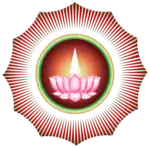| Part of a series on |
| Ayyavazhi |
|---|
 |
Tatvas are the 96 qualities or properties of human body according to Akilattirattu Ammanai, the religious book of Ayyavazhi. They are as follows:
Jñānendriya - 5
The organs of sense
- The eye - the organ of sight having visible formes as its object.
- The ear - the organ of hearing, having sound as its object.
- The nose - the organ of smelling, having smell (odors) as its object.
- The tongue - the organ of tasting, having flavors as its object.
- The skin – the organ of feeling, having touch (contact) as its object.
Karmendriya - 5
The organs of actions
Tanmatras - 5
The archetypes or subtle rudiments of elementary matter, the five elements being resolved into the rudimentary elements of the five senses.
- The light
- The sound
- The taste
- The smell
- The consciousness
Antahkarana - 4
The intellectual powers
- Mana – the organ of thought
- Buddhi – the organ of understanding.
- Aham – the power of mind which leads to the accomplishment of objectives, and eventually toward identifications and attachments.
- Chitta – the organ where Sanskaras are stored, and from where all the vikaras of mind originate.
Naadi - 10
The ten nerves:
- Suzhi munai – the nerve passing through six ataras
- Idakalai – the nerve beginning from the great toe of the right foot and passing up to the left nostril.
- Pinkalai - the nerve beginning from the great toe of the left foot and passing up to the right nostril.
- Kanthari – the nerve beginning at the navel and passing to the neck, where it assumes a sevenfold form, being the source of the seven musical tones of the human voice.
- Atthi
- Siguvai – situated in the region of the eyes forming ten branches, as optical nerves.
- Alambudai
- Purudan – in the region of the ears forming 120 branches or auditory nerves
- Guru – beginning at the naval and reaching to the verenda.
- Sangini – situated in the verenda.
Chakras - 7
There are seven Chakras
- Moolaadhaara
- Swaadhisthaana
- Manippoora
- Anaahata
- Vishuddhi
- Aajnaa
- Sahasraara
Dhatus - 7
The seven constituents of the body:
Vayu - 10
The ten vital airs of the body
- Praana – situated in the heart
- Apaana - situated in the top of the head and passing downwards
- Samaana - situated in the pit of the throat
- Vyaana – pervading the whole body
- Udaana - situated in the navel
- Naaga – which effects the motions and speech
- Koorma – causing horripilation
- Krikara - seated in the face
- Devadatta – that which is exhaled in yawning
- Dhananjaya – that which remains in the body after the death and escapes by splitting the head.
Kosa - 5
There are five Kosa
- Annamaya - The food body
- Pranamaya - The force vitalizes and holds together the body and the mind
- Manomaya - The body composed of mind
- Vijnanamaya - The body composed of intellect
- Anandamaya - The body composed of bliss
Navadwaram - 9
The apertures to the body
Vikaara - 8
(Kaama[desire], Krodha[anger], Lobha[greed], Moha[attachment], Mada[arrogance] and Maatsarya[hatred](Jealousy is also a kind of hatred) are the original Vikaaras mentioned in Gita)
The eight vices
- Lust
- Penuriousness
- Wrath
- Fierce, ungovernable lust
- Recklessness
- Ostentation
- Arrogance
- Envy
Mandala - 3
The three regions of the human body
- Agni mandala – that of fire in lower abdomen
- Aaditya mandala – of the sun in the stomach
- Chandra mandala – of the moon in the head and shoulders
Pini - 3
The three kinds of temperaments - tri doshas
- Vaata - Flatulency – inducing melancholy.
- Pitta - Bile – bilious distempers.
- Kapha - Phlegm – a phlegmatic temper.
Gunas - 3
The three attributes. (The 3 original Powers causing the creation)
- Sattva guna(Jnaana Shakti)
- Rajas guna (Kriyaa Shakti)
- Tamo guna (power of ignorance and obstruction causing darkness)
Mala - 3
The three evil passions inherent in the soul
Avasthaa - 5
These are 5 states of consciousness in human forms.
- Jaagarita - Waking
- Swapna - copping
- Sushupti - Deep Sleep (slumber)
- Tureeya - Underlying state in all the above states
- Unmani or Tureeyateeta - State of enlightened beings where the cosmos is experienced as oneness.
See also
Further reading
- A. Ari Sundara Mani, 2002, Akilathirattu Ammanai Parayan Urai, Ayya Vaikunda Thirukkudumbam.
- N. Vivekanandan, 2003, Akilathirattu Ammanai Moolamum Uraiyum, Vivekananda Pathippakam.
